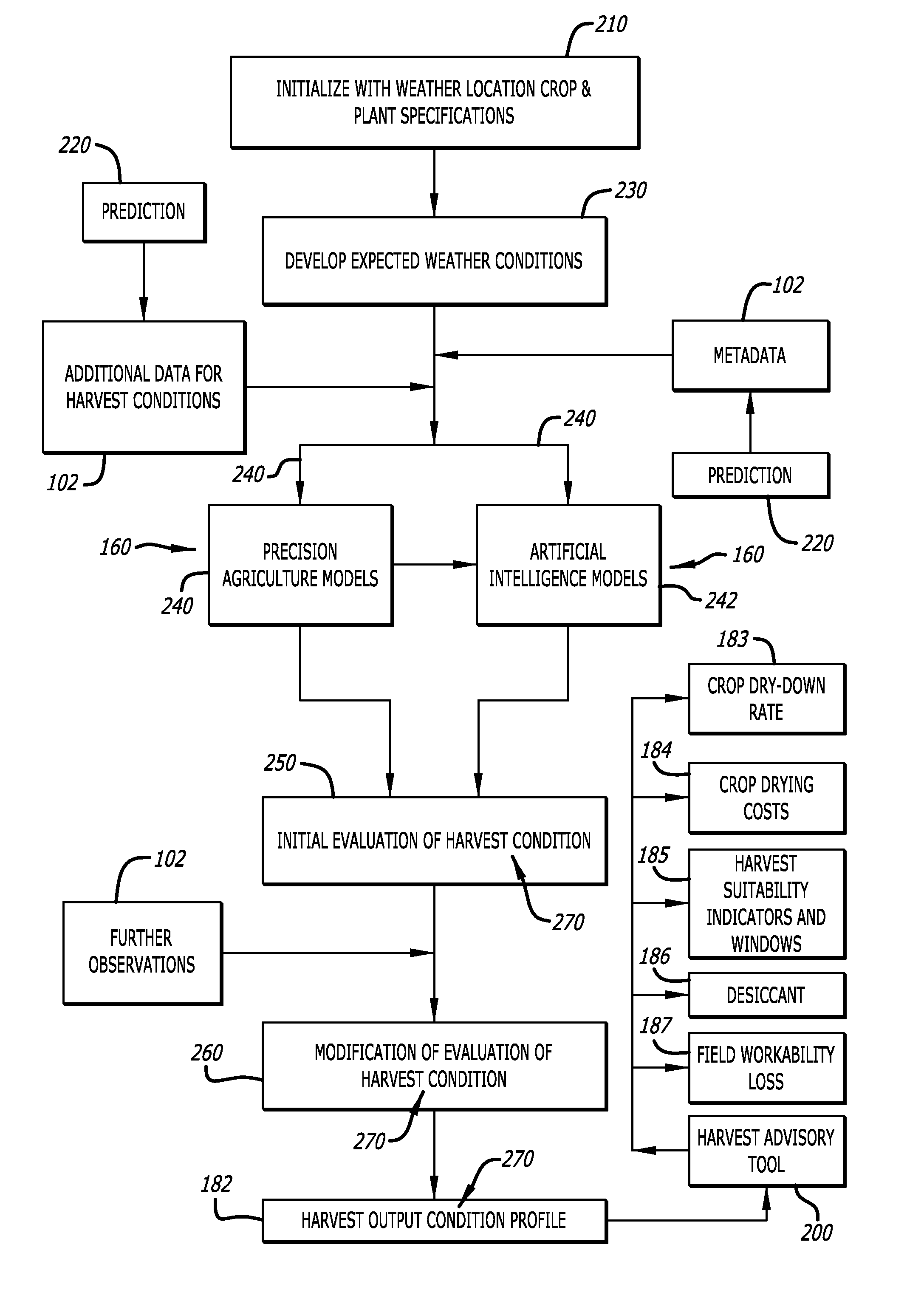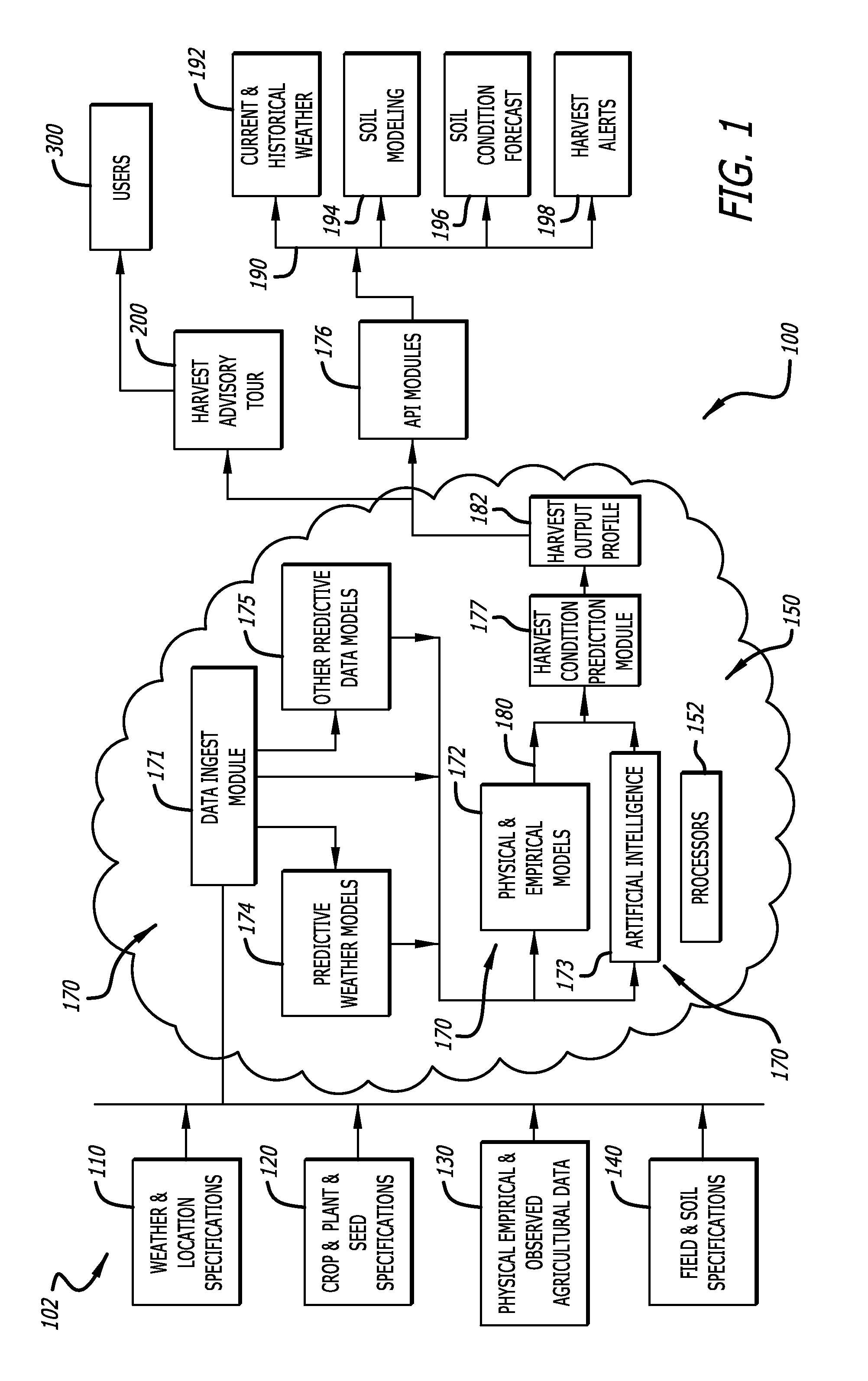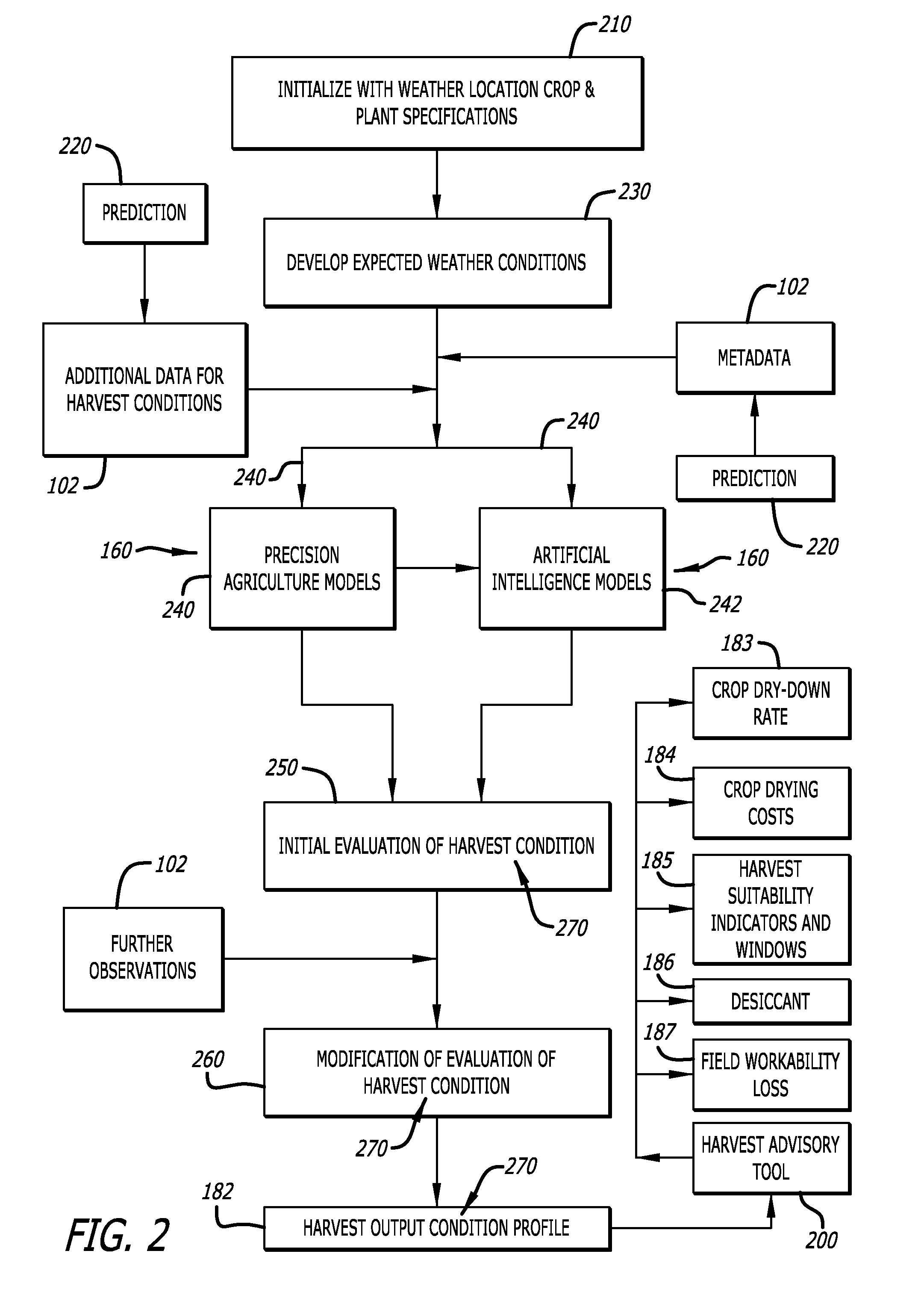Harvest advisory modeling using field-level analysis of weather conditions, observations and user input of harvest condition states, wherein a predicted harvest condition includes an estimation of standing crop dry-down rates, and an estimation of fuel costs
- Summary
- Abstract
- Description
- Claims
- Application Information
AI Technical Summary
Benefits of technology
Problems solved by technology
Method used
Image
Examples
Embodiment Construction
[0019]In the following description of the present invention reference is made to the exemplary embodiments illustrating the principles of the present invention and how it is practiced. Other embodiments will be utilized to practice the present invention and structural and functional changes will be made thereto without departing from the scope of the present invention.
[0020]FIG. 1 is a system diagram of a harvest advisory model 100 for evaluating, diagnosing, and predicting various agronomic conditions that have an impact on farm and harvest operations, according to one embodiment of the present invention. The harvest advisory model 100 is performed within one or more systems and / or methods that includes several components, each of which define distinct activities required to apply real-time, field-level data representative of assessments of localized weather conditions, together with real-time and location-tagged communication of data of various types and content, and long-range cl...
PUM
 Login to View More
Login to View More Abstract
Description
Claims
Application Information
 Login to View More
Login to View More - R&D
- Intellectual Property
- Life Sciences
- Materials
- Tech Scout
- Unparalleled Data Quality
- Higher Quality Content
- 60% Fewer Hallucinations
Browse by: Latest US Patents, China's latest patents, Technical Efficacy Thesaurus, Application Domain, Technology Topic, Popular Technical Reports.
© 2025 PatSnap. All rights reserved.Legal|Privacy policy|Modern Slavery Act Transparency Statement|Sitemap|About US| Contact US: help@patsnap.com



